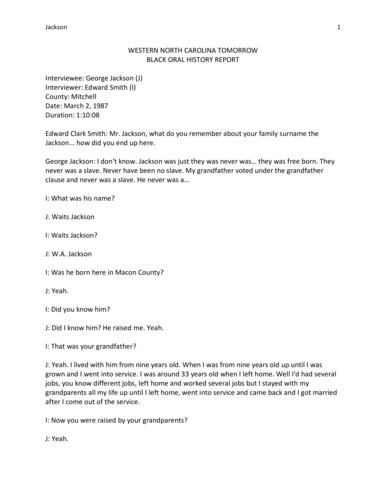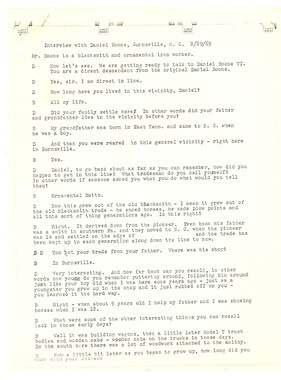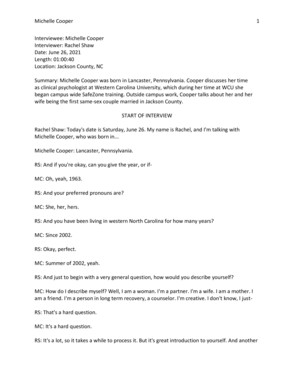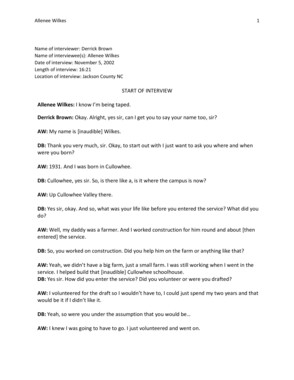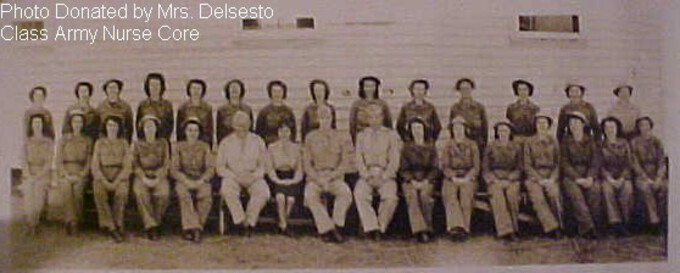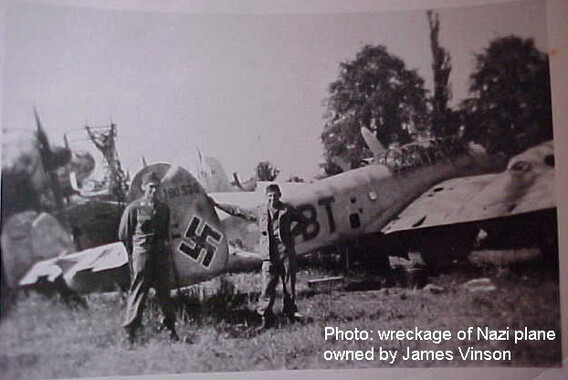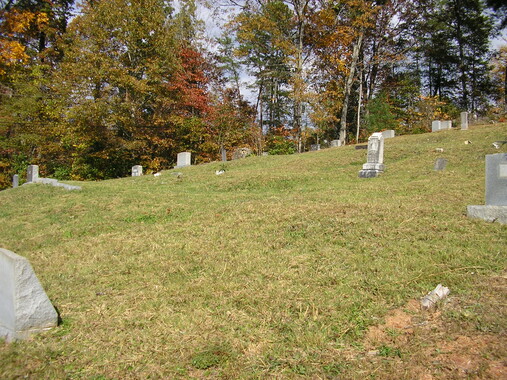Western Carolina University (20)
View all
- Canton Champion Fibre Company (2308)
- Cherokee Traditions (293)
- Civil War in Southern Appalachia (165)
- Craft Revival (1942)
- Great Smoky Mountains - A Park for America (2767)
- Highlights from Western Carolina University (430)
- Horace Kephart (941)
- Journeys Through Jackson (154)
- LGBTQIA+ Archive of Jackson County (19)
- Oral Histories of Western North Carolina (314)
- Picturing Appalachia (6679)
- Stories of Mountain Folk (413)
- Travel Western North Carolina (160)
- Western Carolina University Fine Art Museum Vitreograph Collection (129)
- Western Carolina University Herbarium (92)
- Western Carolina University: Making Memories (708)
- Western Carolina University Publications (2283)
- Western Carolina University Restricted Electronic Theses and Dissertations (146)
- Western North Carolina Regional Maps (71)
- World War II in Southern Appalachia (131)
University of North Carolina Asheville (6)
View all
- 1700s (1)
- 1860s (1)
- 1890s (1)
- 1900s (2)
- 1920s (2)
- 1930s (5)
- 1940s (12)
- 1950s (19)
- 1960s (35)
- 1970s (31)
- 1980s (16)
- 1990s (10)
- 2000s (20)
- 2010s (24)
- 2020s (4)
- 1600s (0)
- 1800s (0)
- 1810s (0)
- 1820s (0)
- 1830s (0)
- 1840s (0)
- 1850s (0)
- 1870s (0)
- 1880s (0)
- 1910s (0)
- Appalachian Region, Southern (15)
- Asheville (N.C.) (11)
- Avery County (N.C.) (1)
- Buncombe County (N.C.) (55)
- Cherokee County (N.C.) (17)
- Clay County (N.C.) (2)
- Graham County (N.C.) (15)
- Great Smoky Mountains National Park (N.C. and Tenn.) (1)
- Haywood County (N.C.) (40)
- Henderson County (N.C.) (5)
- Jackson County (N.C.) (131)
- Knox County (Tenn.) (1)
- Macon County (N.C.) (17)
- Madison County (N.C.) (4)
- McDowell County (N.C.) (1)
- Mitchell County (N.C.) (5)
- Polk County (N.C.) (3)
- Qualla Boundary (6)
- Rutherford County (N.C.) (1)
- Swain County (N.C.) (30)
- Watauga County (N.C.) (2)
- Waynesville (N.C.) (1)
- Yancey County (N.C.) (3)
- Blount County (Tenn.) (0)
- Knoxville (Tenn.) (0)
- Lake Santeetlah (N.C.) (0)
- Transylvania County (N.C.) (0)
- Interviews (314)
- Manuscripts (documents) (3)
- Personal Narratives (7)
- Photographs (4)
- Sound Recordings (308)
- Transcripts (216)
- Aerial Photographs (0)
- Aerial Views (0)
- Albums (books) (0)
- Articles (0)
- Artifacts (object Genre) (0)
- Biography (general Genre) (0)
- Cards (information Artifacts) (0)
- Clippings (information Artifacts) (0)
- Crafts (art Genres) (0)
- Depictions (visual Works) (0)
- Design Drawings (0)
- Drawings (visual Works) (0)
- Envelopes (0)
- Facsimiles (reproductions) (0)
- Fiction (general Genre) (0)
- Financial Records (0)
- Fliers (printed Matter) (0)
- Glass Plate Negatives (0)
- Guidebooks (0)
- Internegatives (0)
- Land Surveys (0)
- Letters (correspondence) (0)
- Maps (documents) (0)
- Memorandums (0)
- Minutes (administrative Records) (0)
- Negatives (photographs) (0)
- Newsletters (0)
- Newspapers (0)
- Occupation Currency (0)
- Paintings (visual Works) (0)
- Pen And Ink Drawings (0)
- Periodicals (0)
- Plans (maps) (0)
- Poetry (0)
- Portraits (0)
- Postcards (0)
- Programs (documents) (0)
- Publications (documents) (0)
- Questionnaires (0)
- Scrapbooks (0)
- Sheet Music (0)
- Slides (photographs) (0)
- Specimens (0)
- Speeches (documents) (0)
- Text Messages (0)
- Tintypes (photographs) (0)
- Video Recordings (physical Artifacts) (0)
- Vitreographs (0)
- WCU Mountain Heritage Center Oral Histories (25)
- WCU Oral History Collection - Mountain People, Mountain Lives (71)
- Western North Carolina Tomorrow Black Oral History Project (69)
- A.L. Ensley Collection (0)
- Appalachian Industrial School Records (0)
- Appalachian National Park Association Records (0)
- Axley-Meroney Collection (0)
- Bayard Wootten Photograph Collection (0)
- Bethel Rural Community Organization Collection (0)
- Blumer Collection (0)
- C.W. Slagle Collection (0)
- Canton Area Historical Museum (0)
- Carlos C. Campbell Collection (0)
- Cataloochee History Project (0)
- Cherokee Studies Collection (0)
- Daisy Dame Photograph Album (0)
- Daniel Boone VI Collection (0)
- Doris Ulmann Photograph Collection (0)
- Elizabeth H. Lasley Collection (0)
- Elizabeth Woolworth Szold Fleharty Collection (0)
- Frank Fry Collection (0)
- George Masa Collection (0)
- Gideon Laney Collection (0)
- Hazel Scarborough Collection (0)
- Hiram C. Wilburn Papers (0)
- Historic Photographs Collection (0)
- Horace Kephart Collection (0)
- Humbard Collection (0)
- Hunter and Weaver Families Collection (0)
- I. D. Blumenthal Collection (0)
- Isadora Williams Collection (0)
- Jesse Bryson Stalcup Collection (0)
- Jim Thompson Collection (0)
- John B. Battle Collection (0)
- John C. Campbell Folk School Records (0)
- John Parris Collection (0)
- Judaculla Rock project (0)
- Kelly Bennett Collection (0)
- Love Family Papers (0)
- Major Wiley Parris Civil War Letters (0)
- Map Collection (0)
- McFee-Misemer Civil War Letters (0)
- Mountain Heritage Center Collection (0)
- Norburn - Robertson - Thomson Families Collection (0)
- Pauline Hood Collection (0)
- Pre-Guild Collection (0)
- Qualla Arts and Crafts Mutual Collection (0)
- R.A. Romanes Collection (0)
- Rosser H. Taylor Collection (0)
- Samuel Robert Owens Collection (0)
- Sara Madison Collection (0)
- Sherrill Studio Photo Collection (0)
- Smoky Mountains Hiking Club Collection (0)
- Stories of Mountain Folk - Radio Programs (0)
- The Reporter, Western Carolina University (0)
- Venoy and Elizabeth Reed Collection (0)
- WCU Gender and Sexuality Oral History Project (0)
- WCU Students Newspapers Collection (0)
- William Williams Stringfield Collection (0)
- Zebulon Weaver Collection (0)
- African Americans (97)
- Artisans (5)
- Cherokee pottery (1)
- Cherokee women (1)
- College student newspapers and periodicals (4)
- Education (3)
- Floods (13)
- Folk music (3)
- Great Smoky Mountains National Park (N.C. and Tenn.) (1)
- Hunting (1)
- Mines and mineral resources (2)
- Rural electrification -- North Carolina, Western (2)
- School integration -- Southern States (2)
- Segregation -- North Carolina, Western (5)
- Slavery (5)
- Sports (2)
- Storytelling (3)
- World War, 1939-1945 (3)
- Appalachian Trail (0)
- Cherokee art (0)
- Cherokee artists -- North Carolina (0)
- Cherokee language (0)
- Church buildings (0)
- Civilian Conservation Corps (U.S.) (0)
- Dams (0)
- Dance (0)
- Forced removal, 1813-1903 (0)
- Forest conservation (0)
- Forests and forestry (0)
- Gender nonconformity (0)
- Landscape photography (0)
- Logging (0)
- Maps (0)
- North Carolina -- Maps (0)
- Paper industry (0)
- Postcards (0)
- Pottery (0)
- Railroad trains (0)
- Waterfalls -- Great Smoky Mountains (N.C. and Tenn.) (0)
- Weaving -- Appalachian Region, Southern (0)
- Wood-carving -- Appalachian Region, Southern (0)
- Sound (308)
- StillImage (4)
- Text (219)
- MovingImage (0)
Interview with George Jackson
Item
Item’s are ‘child’ level descriptions to ‘parent’ objects, (e.g. one page of a whole book).
-
-
Jackson 1 WESTERN NORTH CAROLINA TOMORROW BLACK ORAL HISTORY REPORT Interviewee: George Jackson (J) Interviewer: Edward Smith (I) County: Mitchell Date: March 2, 1987 Duration: 1:10:08 Edward Clark Smith: Mr. Jackson, what do you remember about your family surname the Jackson... how did you end up here. George Jackson: I don't know. Jackson was just they was never was… they was free born. They never was a slave. Never have been no slave. My grandfather voted under the grandfather clause and never was a slave. He never was a… I: What was his name? J: Waits Jackson I: Waits Jackson? J: W.A. Jackson I: Was he born here in Macon County? J: Yeah. I: Did you know him? J: Did I know him? He raised me. Yeah. I: That was your grandfather? J: Yeah. I lived with him from nine years old. When I was from nine years old up until I was grown and I went into service. I was around 33 years old when I left home. Well I'd had several jobs, you know different jobs, left home and worked several jobs but I stayed with my grandparents all my life up until I left home, went into service and came back and I got married after I come out of the service. I: Now you were raised by your grandparents? J: Yeah. Jackson 2 I: What was your grandmother's name? J: Biddie I: About how old was your grandmother? J: My grandmother was 105 year old when she died? I: And how old was your grandfather? J: 96. I: How did they earn a living? What did they do? J: They worked on the farm. I: Did they own the land? J: They had 65 acres of land they lived off of. I: And that's all they did for a living, work on the farm? Your grandfather didn't work out anywhere? J: No. We moved away from [here] and farmed different places, worked Swannanoa on Alexander Farm for a couple of years and we moved to I: Where was that? J: In Swannanoa, NC in 1921. I: How old were you then? J: I don't remember. I was about 15 or 16 years old or somewhere around there. I: What was it like… J: Rough. Rough going. I: Why? J: Well, there was… we had no, there was not age, wasn’t no child or nothing for us to do. They didn’t have no job for us. Well, sometimes we'd get a day or two of our own work our own team on a good road job or dragged down for grading on some job or something. All or something or other equal round work with horses. Jackson 3 I: Did your grandma and granddad, did they ever attend school. [Did you ever talk about what they did in school?] J: I don't know as I ever did. I heard them talking something or other about an old 78. But all she ever learned was from her old blue black black speller. I don't know whether she got it from the school or she got it from but I heard her say to my grandfather, that's most that she ever learned was from that book, but she could read the Bible as good as anybody. She could read, but she couldn't do much good at writing but she could read good. I: Where about to school… did you go to school? J: Yeah. I: Where did you go to school? J: I went to school at Swannanoa and I went to school at Marion one session and I went to school up here at Altapass I: Now you were born in Altapass? J: Yeah. I: So when you started out in school? J: It was a little old one-room school house. Teach about 10 or 15 kids. Then they was in the neighborhood, while that's as many kids as the teacher had and they sometimes they--I reckon they had 3-months school or 4 months or 5 or whatever they had then. You know, claim they had in treasure, they'd give it to them and that was all they… my grandfather give the property for to build the school and they built the school house and when they quit having school they sold the school house and property both back to me. I: [where was the land?] J: Just a little old cow-pasture school Altapass, Jackson Town school. I: Jackson Town School. That's where the Jackson Town Community was and I was trying to find. Now we're in Swiss Pine Lake. Now were you born on this side? J: I was born and raised on the Altapass side. This is Grass Creek Township. I: And you were born on the Altapass side? J: Yeah, I was born on the Altapass side. Jackson 4 I: As far back as you can remember, how many of your aunts and uncles do you remember? Do you know any stories about them? J: Aunts and uncles, I knew all of them, but Aunt Marion and Uncle Doc, Uncle Tom and… I: Did they all [inaudible]? J: No. Uncle Tom was... see my grandmother had been married twice. She was married before she married Jones, can't think the first name right off, Alf Jones. Alf. Alf Jones and so he died and she married Daddy Waits and that was before I was ever born. See, there's Tull and Jimmy and my mother Sarah and Barbara was by her first husband and Worth and Delia was by her last husband [inaudible] Jimmy, he never was around. I never knew him until after I got grown. I didn't know who he was. When I left here I was about 17 or 18 years old. I went to Kentucky when I was about 15 or 16 years old. My aunt was married to Roland Owens--lived at Blackey, Kentucky. I went to work in the mines with him and I: You were 16 or 17 and working in the coal mines? J: He took me in the mines and I went to work in the mines and after then I come back home. He went to West Virginia and I come home and he went back to West Virginia. He went to Faraday, West Virginia and I went back to West Virginia and went to staying with them again. I went back to the coal mine and me and Rochelle [inaudible]and I was grown then. I guess Rochelle was married and had two or three children. Uncle Jimmy was going to be quarantined in someplace in Pennsylvania. They didn't get him out of Pennsylvania. They's going to quarantine him in that holler, that there was some kind of TB or something or other--there's so many people getting the disease, that TB, and that they's going to quarantine the whole shebang in there. So we got him out of there and we brought him home and I didn't know him a bit more than--I had never seen him. He just come and stayed with Uncle Tom a little bit. Rochelle saw him and he didn't… he'd been out there in Pennsylvania with Uncle Doc and stayed around but Uncle Jimmy [inaudible] and he come on out there and he--I come back home then and stayed awhile and then I went back to… I went back to West Virginia again, and the last time I went to West Virginia just before I went back to--got my call to go to the army. They tried to get me to move my local board to West Virginia to keep from going to the army you know. The miners was getting deferred you know to the [inaudible] and see that… then other words it was getting up about past my age limit to go be called in the service anyway. I was getting past going to war and they reached back to 35 and they got me on the last call and wanted me to move my local board up there and then I’d get [deferred] and I said no, I ain’t gunna do it. I said they can do what they want to, I said I ain't going. I ain't going, I ain't no draft dodger. [inaudible] You know if you was working then once they get you deferred why they want you to work anyway and anytime that they want you to. Anyway I didn't see it as always [inaudible] I: What was it like working [inaudible] blacks and the whites? Did they get along? Jackson 5 J: Yeah, they got along pretty good. Most of the time. Well at the first the… we had a pretty good unit until after Johnny L. Lewis got out of the union business and the coal field. That shut the union down. That stopped the union. But when he was in the union and whatever he asked for that's what he got. I: Now you worked in… Who were the leaders when you got here? J: Uh… I: Were they local leaders, like people in the community like you are now? Were they local leaders that people…? J: No. I: Black people I mean? J: No. The older people and people with… money people that's the people that run the business. That's always have been. I guess always will be. Money people runs the business. I: When you were growing up back here in Altapass were there any black families that you [inaudible]? J: No. That's the reason we had to leave to get jobs and they wasn't no place here to… and no coloreds here to look up to. They wasn't no moneied people in the… the last dry cleaners and a few little places that you know colored people worked in. I: In Altapass? J: No here at Spruce Pine and Altapass. Down at Altapass my brother he worked at… [we even had a] saw mill, cut timber, we cut hardwood and first one thing and then another just to put groceries on the table. I: Times were hard. When you were coming up along those time, what did you think about [inaudible]? Did you ever have any… J: I didn't have no education and it wasn't nothing but a hard road for me to go. And I always tried to do something for mine that I can never get for myself. I say that I'll do something for mine that I can just put them through school and that's what I done. I: Have you done anything that when you think about now you would have done differently? Jackson 6 J: Well, if I could have backtracked and started out again I guess there are a few things I'd went a little different way about it but I don't regret too much of my life. I had it pretty rough but after all I made it pretty good. I: What year did you go into service? J: I went into service in '44. I: What were you doing Army? J: Huh? I: Army J: Yeah. I: What was it like going into service for a black person? J: Well, it [was] altogether segregated then when I first went in and it wasn't too sweet it wasn't too… but you could, you didn’t hear people talk about now well they do. These sergeants run up in a man's face close enough until he almost rub lips with the private hollering and yelling and going on and that's about all. I seen in a movie the other night where's there's a boy in the service where he's…they sent a boy in to get his hair cut and the barber cut the boy's ear and he, oh man, he just went on terribly you know. That boy would sit there and be tough you know he plastered up his ear and never said nothing about it. You know if you do that now why the barber would get both his ears cut off. I: Where did you go for [inaudible]? J: Down in Fort Bragg. I: What was it like going to Fayetteville [inaudible]? J: Not too bad. [inaudible] orders. [inaudible] and I done my basic training in Texas. I: Do you remember what year that was? J: Might have been the same year but I didn't stay in Fort Bragg but about 6 weeks. But training went from there to Fort Dix New Jersey and Jersey went to Camp Hope, Louisiana on maneuvers. I hadn't had no furlough. They was going to send me overseas without a furlough. I told them I wasn't going. I hadn't had no furlough. I packed up all my things, put them what I could in my foot locker and the other things in my duffel bag, carried them up there to the [inaudible] tents. Loaded in there, and when I come back I didn't have nothing. Never did see none of my personal stuff. Never did know what happened to it. I come on back and I had, let's Jackson 7 see, I think I had about 14 days to get ready to go to Fort Dix, New Jersey. I had 14 days to get ready for overseas. They issued me all new stuff. I went to ask did I had any business I wanted took care of. Yeah. They said, "What?" I said, "I made an allotment to my grandmother when I come in. I said I just come from home on furlough. I said, "They ain't never got a penny from me." I said, "They ain't received nothing." I said, "I stayed with my grandparents all of my life. My grandmother raised me." You said I couldn't make an allotment to my mother because my brother had an allotment made to her. I said, "He's in service." My baby brother got an allotment made to my mother. I said, "I told you I didn't want no allotment made to her." I said, "I wanted one for my grandmother who raised me." He said, "You can't make an allotment to your grandmother." I said, "I can." I said, "I got a $10,000 insurance [inaudible]." I said, "I'm going to give her the insurance allotment.” He said, "What do you mean?" I said, "I’m going home unless she gets the allotment." I said, "I took care of her before I come here." I said, "I'll still do that." The post commander, he said, said, “he means it.” He told that to the corporal. He said, "You go in there and get $12, I forget the name now, but he told him, you go in there and get him $12, come back said you fill out them copies and [him] sign one. You send (11?) of them home. You send… you fill out 12 copies. You fill out, let him sign one of them, you send them to Philadelphia. You sent others on to his grandmother and send. They will be allotment. So that man means that his grandmother to be took care of. I: [inaudible] J: When I got overseas my grandmother wrote and told me that she was getting $64 in [inaudible] which… I: About what year? J: That was from 1944 to 1946 or 1947 and when he told me that she was getting her allotment, he says, "You know what?" He says “There ain't nary a married man that his wife gets allotment.” He said they just [inaudible]. He said there is something wrong. That's what that fellow told me. He said there is something wrong somewhere. I said I hope it ain't on my part. [laugh] I: Now you were in the [inaudible] for how long? J: For 2 years… 30… two year and 4 months. I: Two years? J: Huh? I: How long, two years? J: Two years and four months. Jackson 8 I: Two years and four months. What did you think about the Army? J: Well, I stayed in there long enough to know it, [inaudible] I: [inaudible]. Can you remember any historical events like economic depression, droughts or floods that effected your family? J: Big snow come here in 1960 and stayed on the ground until way up in May next year. I guess you know about that. You was here then. [laugh] I: Do you know any stories about any of your relatives? J: None worth talking about. I: What are some of the contributions that you think black people have made in the community? In this part, Western North Carolina. [inaudible]. J: Well, I can’t think that any right around here, these… but there’s, I’ll say it Martin Luther King opened my eyes big. I: What did you think of him? J: He's a mighty man. He was a mighty man. I: When you were growing up did you all go to church service? J: Yep. I: What church did you go to? J: The only church we had. It was one back here up there at home in Jackson Town. I: What was the name of the church in Jackson Town. J: It was a Methodist church and Church of Christ, Church of God or whatever. We had anything or anybody come by to preach that's what we get. So the preaching out of the book we didn't get, just so preaching from the Bible. I: Do you remember any customs that were in the church then that they don't do now? Do you see any difference between then and now? J: Well, I don't know that there is too much difference. There was a lot of stuff going on. There was… Jackson 9 I: I talked to people who said that they remember when people washed feet in the church. J: Well, I never had nobody washing mine and I never washed nobody's feet, but I've heard of it and I never did see nobody do it. Well, was you washing their feet because you thought they was dirty or you just cause you liked them or what? I: [inaudible] J: Huh? I: [inaudible] J: Washing feet didn't take but a second, didn't make the sacrament taste no better. I: How do you feel [the lives of] black people has changed today? Do you think it has gotten better? Overall? J: Huh? I: Do you think it has gotten better for black people? J: Well, it may be a little better. I do think that you know it happened, but I don't believe it's going to happen quite as fast as people think it's going to happen. You know, it's coming, but (change sides of tape) I: So you think that it's gotten... What's going to have to happen? What would you like to see in the future? What do you would have to happen? J: Well, it's… I'd like to see the freedom of speech and free equal rights… I mean not to just as far as the right to work and places to go. Far as they, the people, there are other activities, other social wise I don't [inaudible] I: You just think if they had jobs, the economic... freedom of economic advancement. That's the right to have jobs and own businesses and the money to get them from the banks. J: That’s right. I: Can you think of anything else that you would like to say? Cause you did a fantastic job answering all my questions. J: Yeah. There is a looooooong, long hard road to go to get to where you want to go. And I traveled this country and five countries overseas and there is no one who knows how hard the road is. He should have been behind this black boy when he was young. I didn't have short Jackson 10 while to go. I have no time to wait. I was traveling and Uncle Sam give me the experience by the traveling that I got and I thank him for that. I don't know as I give him the service that he wanted, but I got a lot of experience out of my traveling, out of what I done for him. I: Can you suggest anybody else that I could talk to that can give me some information about their lives? J: You can talk to [inaudible]. I: Is he over 70? J: Yeah. I: Well I sure appreciate you taking the time to do this and if you think about something. J: I come through there on the bus one time and we had ordered some sandwiches and there was about 6 or 7 white guys. There was about 25 or 30 black and they was about 2 or 3 black MP's out there, and they was about 2 or 3 white policemen out there. And they said give me a coca cola. I turned it up and drunk about half of it and set it back down and went to open my sandwich. “You can't eat in here!’ I said, "Well I don't want the damn thing here." I just set it back down. I said, "I don't want the damn thing if I can't eat it in here I don't want it." “Well, you done drank half of your coca cola.” I said, “I don't want it.” Well, I done drunk half of it. Started out and… You won't come back [inaudible] damn business done drunk half of his coca cola and walking out and ain't going to pay for his sandwich. And everyone come running to the door… they come in, white boys and polices [laugh] and 'niggers and all got through tearing up that café. They didn't have no stools to sit down on at the counter. They didn't have nothing behind the counter, no drinks in the box. I: Little Rock was rough anyhow. You know they had to have in the 60s they had to send the army down there. J: Sure. I: To take people to school, little children to school down there. J: They stopped that stuff though. I: Is that the first time you ever saw that kind of racism? J: No. We tore up a bus station in West Virginia one time. Tore the counter down. Tore that thing down and there wasn't a thing standing in the front part. Tore it down, the whole glass front, tore the whole front of the place out and the police helped, they was scared not to. I: What happened? They didn't want to serve you? Jackson 11 J: They refused to serve me and we got [inaudible] between him and the outside and he had to help to get out. I: Did you ever run into any of that kind of feelings up here in Altapass? J: No. I: I wonder why? J: Well, we had a little mess up with a negro... a white man running around after the black women one time, but that was all. That’s going on everywhere. I: So it was always [inaudible]? J: Yeah it is. You see… that's anywhere because ain't nowhere in the whole American world that the white man wants to play, who want to play the field where that the black man can be the [inaudible] That’s what I mean? He wants… he don't want to play the field. You get out yonder and get to playing in the field well, you might get behind the bush and we don't like that. You can't play behind in the field where he played. He ain't going to stand for that. You have to come from behind the bush. Play on the base where he can see. I: Well apparently, you didn't always play on the base. You did alright didn't you? J: Well, that's alright. I… they know who to trust because see if he gets his good players against him why he can't play. I: He didn’t play for him. J: He ain't going to play as long as he is in your sight neither. He's going to be always watching. And he can't play good if he is always watching. I: That's right. You can't keep your mind on the game, can you? You can't keep your mind on the game, what have you got to watch? Well I want you to think about it. I'll come back and we'll talk again because I think you … I: Well, I'm going to ask him about… how many brothers and sisters did you have? J: There was… there was eight of us. Four and four. I: Four girls and four boys? What were their names? J: Five boys and three girls. There was [Worth], we also have Raymond, [inaudible], Sam, David, [Virginia]. One, two, two girls, I’ll have to think, Rochelle, six, four and four. Jackson 12 I: Where are you in the line with your brothers and sisters? Were you like the middle or older than them? J: Let's see. I'm about middle way. There's Rochelle, and [inaudible]. Unknown: And Avery. J: And then Avery and then me. Unknown: [Wess] and me. [inaudible] J: Yeah. I: And all you all were raised together? All of you all lived in one house? That’s a lot of people. J: Me and Coot and Rochelle and Raymond all stayed with Grandpa. I: You had some real patient grandparents to put up with all of y’all. [laugh] Of course I know you all were easy to get along with and everything but I know that was difficult. Unknown: Waits was a good old man. [Inaudible] J: Old man Waits. I: That was your granddad? J: Yes sir. I: He was? J: He was meaner than any dog you ever seen. Had a heart bigger than he was. Unknown: Give you anything. J: Give you anything in the world that he could. Anything in the world that he thought you needed. If you needed it and don't you never, don't never try to steal nothing from him or he will follow you to the jumping-off place and throw you in the pits of [Inaudible] if you stole a dime. I: Did you ever know anybody take anything from him? J: Plenty of times. Jackson 13 I: Did he ever get you? J: No. I didn't have to steal. Because anything I needed I had and all I had to do was ask. And Raymond didn't have to ask for nothing and Raymond I see Raymond get him and run like a dog! Yeah, he'd run like a dog and he'd stay gone for two or three weeks and he'd come back. He [Inaudible] At the first chance he got [Inaudible] and he'd leave and stay gone a week or two and he'd come back. I: And that was your brother? J: Yeah, younger than me. I: [Inaudible] J: Who, Raymond? Yeah, he's been dead four or five years-longer than that I guess. I believe he's been dead for about six years. But Raymond was too mean to live anyway. I: What did he die of? J: He died of emphysema, rock dust and coal dust and everything else. I: He was a miner? J: Yes. I: Of all your other brothers and sisters, how many of them are living? J: I've got one. I: Where? J: In Alexandria, Virginia oh uh Winchester, Winchester, Virginia. I: Just the two of you left? J: Yeah. I: Do you ever see him? Do you get a chance to see him any? J: I see them ever once in a while. Come down here and I'd go up there sometimes. I got a daughter here at the house down there [about where we lived]. She’s my baby girl. I: How many children did you have? Jackson 14 J: Six. I: Are they all… where are they? J: Scattered out here and yonder. I got one in California. I: What's her name? J: His name is George. I: George Jackson? J: Yes, George Jackson and I got one in High Point. I: And what is the name? J: [Jim] Jackson [Inaudible]. And I got one up there in Winchester and one girl here and two boys here. I: What are their names? J: Wayne and Michael. I: Wayne and Michael Jackson. J: Michael Jackson [Inaudible] I: Get some of that money? J: It takes a lot of money from me. I: I know but Michael Jackson. [laugh] Yeah, give me some of that money! J: He had Michael's name before he got it. I: He sure did. J: He got a famous name. His name is Michael Van Doren. I: Who was the Van Doren after? J: What's that Van Doren that was on that quiz show you know that won so much? I: Sixty Thousand Dollar Question? Jackson 15 J: Yeah. He was named after him. J: Michael Van Doren I: What's your whole name? J: My name is George L. Jackson. I was named after George L. Porter. The man that owned two of the biggest coal mines in the State of west Virginia. I: George L? J: Porter I: Well, what's the L. for? J: That's just… he had a contract on this railroad when they built this railroad. I: [Inaudible] J: Yeah--that's how come me to be named after him when they was building this railroad through here. I: And he owns that? After you were born? J: Well, I don't guess it was plum through. Maybe it was through. Yeah, I know it was through because… Anyway, he had a contract on building this railroad and Mother named me after George L. Porter. And I went through the army and everywhere George L. Jackson and somewhere but what was I doing when I come back to the states and I had to have a name with that middle initial and I just I believe it's put on my driver's license or something or other and I just said ah, put Lee on there, George Lee. I: And that's how you got Lee? J: And I went all of my life and all through the service and everywhere as George L. Jackson and they wouldn't something I was supposed to… and I just signed the L. and they wanted a name for that middle initial and I said well, put Lee in there and that's what they done.
Object
Object’s are ‘parent’ level descriptions to ‘children’ items, (e.g. a book with pages).
-
George Jackson is interviewed by Edward Clark Smith March 2, 1987 as a part of the Western North Carolina Tomorrow Black Oral History Project. Jackson was born in Altapass in Mitchell County in 1909. He was raised by his grandparents who owned and farmed 65 acres. Jackson moved to Swannanoa in 1921 and when he was about 16 went to West Virginia to work in the coal mines with his uncle. He was drafted and talks about why he chose to not use his work as a miner to obtain a deferment. Jackson served in the Army from 1944-1947. He shares stories from his service, his travels, and the Civil Rights movement.
-
